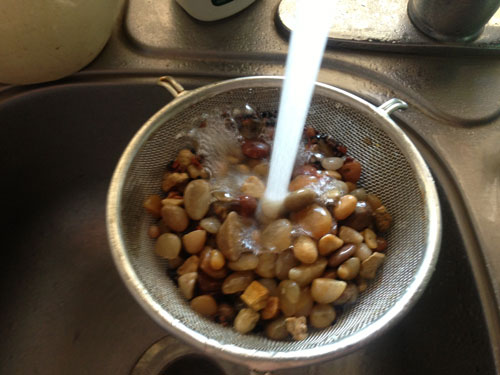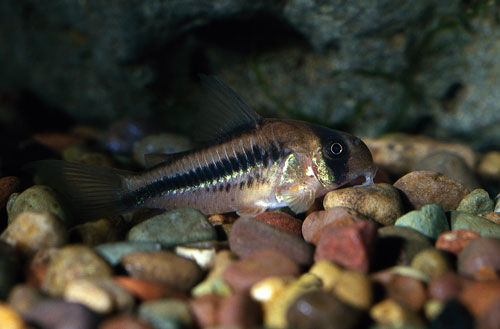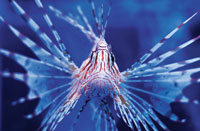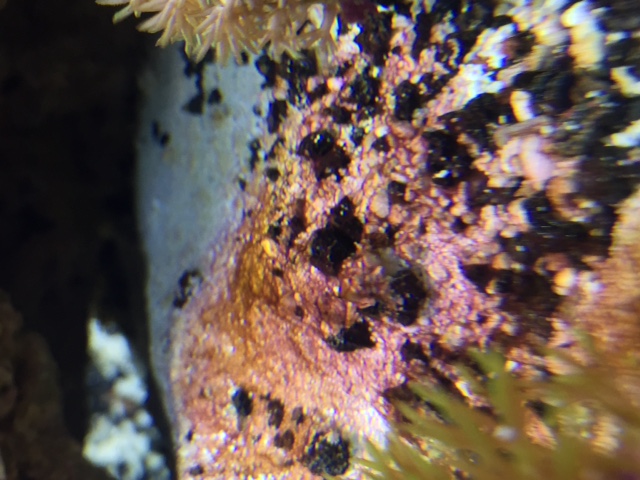The development of acne in teenage years or even into adulthood can be distressing. Conventional treatments often only mask the symptoms rather than dealing with the underlying causes and triggers. This article looks at the causitive factors and how natural dietary measures can help heal this common skin condition.
Acne is a skin disorder common to many teenagers living in the Western World and in the last 20 years, an increasing number of adults. An inflammatory disease of the skin, the most common symptoms of acne include pimples, comedones, whiteheads blackheads, pustules, cysts and scars.
The development of acne is multifactorial with a number of causes and exacerbating factors contributing to the onset and persistence of the condition. These include:
* Sex Hormones - High androgen production is one of the key reasons acne tends to flare up at puberty or with the menstrual cycle. Androgens stimulate the production of sebum in the skin's oil glands. Oil glands that are blocked by dead skin cells build up sebum creating swelling. Sebum production can also be stimulated by sweat and humidity.
* Bacteria - A bacteria species Propionibacterium acnes (P. acnes) is commonly found in the pores of the skin. Under normal circumstances P. acnes is in balance with the skin environment however when stimulated by factors such as excess sebum and pore congestion the environment is ideal for bacterial growth. Overgrowth of P. acnes triggers an inflammatory response, leading to pustules.
* Cosmetics and medications - Contact with oily substances such as mineral oil, rich creams or make up and petroleum based products can trigger or exacerbate acne. Cosmetics can also cause skin irritation which may flare-up acne. Certain medication such as steroids can also stimulate acne production.
* Stress - There is some indication that stress can exacerbate acne by disrupting hormone levels and suppressing the immune system.
* Dietary Factors - There are a number of links between diet and acne. Diets high in trans fats, simple carbohydrates and sugars promote inflammation in the body, which aggravates acne. A high glycemic index (GI) diet is also associated with insulin resistance and increased production of androgens.
* Insulin levels - High insulin levels occur when the cells that usually take glucose up from the blood become resistant to its effects. The pancreas responds by producing more insulin creating a cycle that can lead to an increase in acne, as well as weight gain and hormone imbalances.
* Nutritional Deficiencies - Zinc, Essential Fatty Acids and vitamin A are important skin nutrients. Deficiencies in any one of these can lead to skin problems. Skin that is dry and inflamed or congested with whiteheads or blackheads may be deficient in EFAs. Skin deficient in zinc can scar very easily which is often the case in chronic acne. Adequate levels of zinc in the skin will help with skin repair and reduce ongoing scarring. Acne and rough or thick skin are also possible signs of a vitamin A deficiency.
Conventional Treatment
Conventional treatment for acne ranges from medicated washes to medications such as Roaccutane. Ingredients found in over the counter medications are either aimed at reducing P. acnes, degreasing the skin or reducing skin shedding. While they may be effective in some cases, many of these treatments have potential side effects such as skin dryness and are only treating the symptoms rather than the cause of the condition.
Skin Hygiene & Topical Treatments
Skin hygiene is paramount when it comes to managing acne. Frequent touching the site of acne can lead to P. acne being transferred to other sites on the face or body. Picking or squeezing blemishes or blackheads can lead to scarring. Good hygiene practices help to minimise irritation, scarring and bacterial transfer. Suggestions for reducing acne lesions include:
* Wash your face once or twice a day.
Washing at night helps to remove environmental grime, oil secretions, creams and make up. Washing in the morning removes debris and dead skin cells produced during the night.
Use a mild natural soap or foaming cleanser that won't dry the skin out. If your skin feels tight or dry after washing it is an indication that the skin's protective barrier has been significantly disrupted. This can lead to over production of sebum (oiliness).
* Wash your hands before touching your skin to reduce the chance of infection.
* Don't pick or squeeze pimples as it can spread bacteria under the skin and cause skin damage, increasing the likelihood of scarring.
* If you have oily hair or pimples around your hairline, wash your hair daily.
* Avoid make up or face creams that are greasy or oily.
Look for light or gel products that support skin healing. Natural ingredients such as Aloe vera, Calendula, Lavender, Chamomile, Rose geranium & Cedarwood essential oils and Manuka honey can assist with skin healing, reduce sebum production and inflammation.
Facial products that contain sodium lauryl sulphate, socetyl stearate, isopropyl isostearate, isopropyl palmitate, isopropyl myristate,sodium chloride and parabens may increase irritation, dryness and contribute to acne.
Mineral Make Up is ideal to cover up the redness and irritation associated with acne as they don't sink into and clog the pores.
Dietary Considerations
A recent Australian trial conducted at RMIT University, Melbourne, has shown that a low glycaemic index (GI), high protein diet improved symptoms of acne including the number of facial lesions. It also reduced the causative factors associated with acne such as high androgen levels and insulin resistance. The diet consisted of 25% of energy from protein and 45% of energy from low GI carbohydrates such as fruit and vegetables, grains and pulses.
Interestingly acne is seen as a condition associated with Western diets that are generally higher in saturated and trans-fats, high in simple carbohydrates and sugars and lower in healthy protein sources. Acne vulgaris is seen in up to 79-95% of the adolescent population in Westernised countries. Non-Western diets, which are traditionally high in low glycaemic foods, do not have the same association.
There are a number of simple dietary changes that support skin health, help minimise sebum and balance hormones:
* Consume Fish regularly: Fish is an excellent source of protein and essential fatty acids. Protein is important for skin healing. Essential Fatty Acids (EFAs) help to keep skin flexible and hydrated as well as promoting skin healing. Deep Sea fish are the best source of EFAs including tuna, salmon, anchovies and sardines. A fish oil supplement may be a good idea if fish intake is less thank twice a week.
* Eat Lean Animal Protein: Lean red meat and organic chicken are good sources of valuable protein that is essential for skin healing and repair. A palm size serve of animal protein 2-3 times a week will help support skin health.
* Eat plenty of Fresh Vegetables: Vegetables are low GI and full of antioxidants and trace nutrients that help to heal and repair the skin. Betacarotene (a precursor to vitamin A) is found in vegetables including carrots, spinach, sweet potato, kale, green leafy vegetables and red capsicum. Regular fruit consumption is also important.
* Purified Water: Drink at least 8 glasses of water per day. Water promotes healthy digestive habits and helps to flush toxins out of your body. Water is also essential to keep your skin well hydrated.
* Go for Whole Grains & Legumes: Whole grains are rich in fibre, low GI and nutrients. This promotes sustained release energy and reduces inflammation. Zinc, important for skin healing, is found in whole grains along with sunflower & pumpkin seeds, beef, egg yolks, ginger and lamb.
Foods to Avoid
* Processed Foods & Sugar: Foods high in sugar increase the body's production of insulin, promote inflammation and can cause or exacerbate acne. Minimise the following foods in your diet to less than 10%: cakes, lollies, processed flour products, white bread, white rice (with the exception of Basmati), fruit juices, baked goods, and trans or hydrogenated fats.
* Soft drinks & diet soft drinks: Soft drinks are full of sugar and often caffeine. The phosphorus and sodium in soft drinks can lead to skin drying and the carbonate can cause digestive disorders. Drink water, herbal teas, and vegetable juices instead.
* Dairy: There is some research that suggests that a high consumption of milk and dairy products may be linked with acne. The Journal of America Academy of Dermatology published a report showing a positive association between dairy consumption, particularly milk and acne in teenage girls. Suitable milk substitutes may include soymilk, rice milk, almond milk and fresh goat's milk.
A healthy, low GI diet is important in the management of acne, both in teenagers and adults. In combination with good hygiene practices and natural, healing topical treatments, acne is a condition that can be managed effectively before resorting to medications.

 How to Get Rid of Cloudy Aquarium Water
Occasional cloudy water is an issue for nearly all aquarists
How to Get Rid of Cloudy Aquarium Water
Occasional cloudy water is an issue for nearly all aquarists
 Top 10 Fishkeeping Mistakes
Aquarists can say they’ve never made a mistake in their fish
Top 10 Fishkeeping Mistakes
Aquarists can say they’ve never made a mistake in their fish
 Invasive Aquatic Species
Last column, we discussed invasive species and the potentia
Invasive Aquatic Species
Last column, we discussed invasive species and the potentia
 Red Algae in Marine Aquarium
Q. Ive been keeping saltwater fish for about five years, and
Red Algae in Marine Aquarium
Q. Ive been keeping saltwater fish for about five years, and
 Catch More Salmon - Follow These Simple To Implement Techniques
FLAT Rigs outriggers, shock cord snubber, and rigging kit i
Catch More Salmon - Follow These Simple To Implement Techniques
FLAT Rigs outriggers, shock cord snubber, and rigging kit i